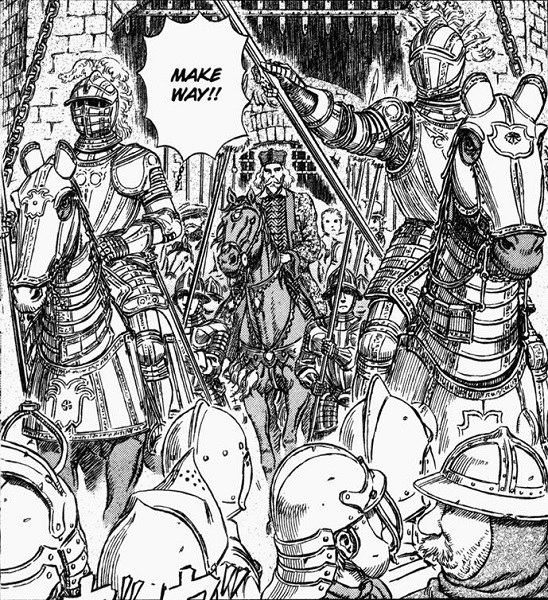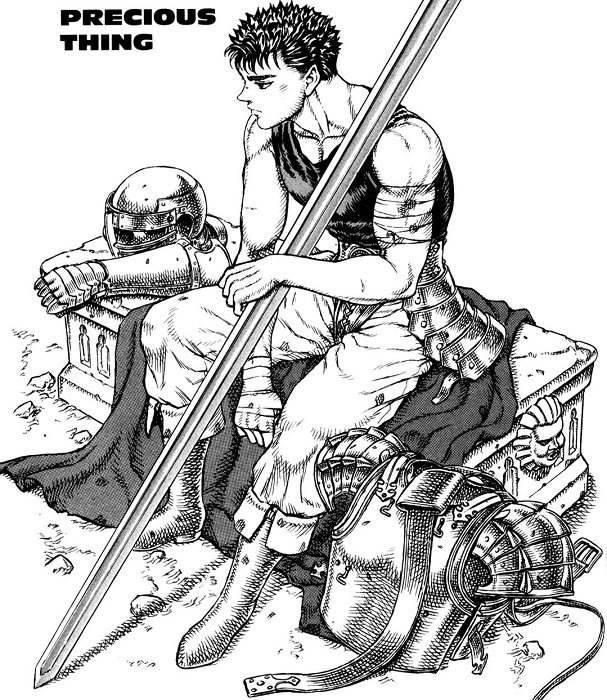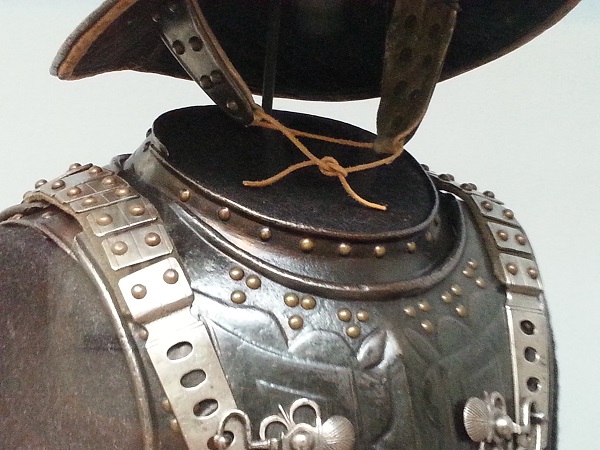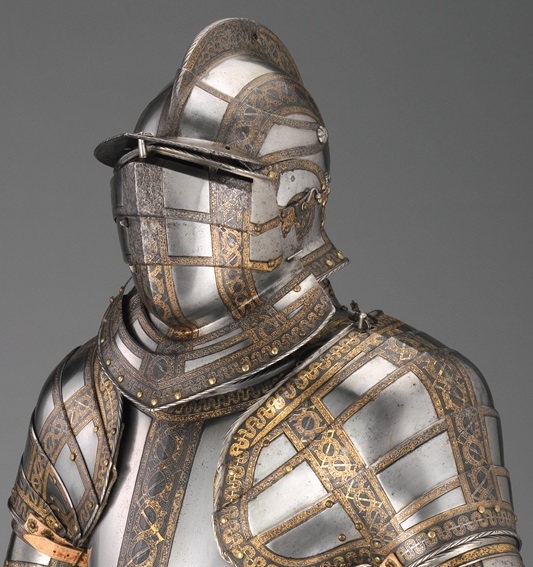I am a little nervous about whether this subject will be of interest to others, or if at this stage it is appropriate to ask advice, but let's find out: For the past three years I have been a fan of the Japanese manga comic "Berserk" by Kentaro Miura, which is set in a fantasy world based on medieval and renaissance Europe and has an unusual amount of attention to detail concerning European arms and armor. Miura seems to have done substantial research but also has a wild imagination, causing the armor depicted to vary from the utterly fantastic to almost complete accuracy. Despite my general preference for historical armor that is as accurate as possible, the idea has been floating in my head for a "fantasy" armor commission based on the equipment of the story's protagonist, Guts, during the so-called "Golden Age" story arc. It started as an idea for a cos-play--in other words a costume based on the character for me to wear to a convention--and I thought it would be nice if at least one element of the costume, the cuirass, were real usable armor while the rest could be props made of plastic and such. I thought that if it were properly fitted with my jacket I could also use it for longsword sparring, perhaps. However, upon seeing the armor rendered in 3D for the 2010s feature film trilogy adaptation I thought for the first time that the whole shebang could actually be made to work in the real world, even if it would not be as practical as historical designs. For an amateur like me who's never commissioned a custom anything to have such a crazy idea must be biting off more than I can chew, huh?
As I am 24 years old and headed into grad school I have to say upfront that I may not be able to afford such a project for years or even a decade. In other words, this is more of a long-term aspiration than something I am thinking of doing right away. All the same, I wish to ask for the opinions of others to figure out what would be necessary to make it happen and what sort of armorer(s) might be willing and able to execute it for me. It would also be nice to get a ballpark idea in the broadest terms of what it might actually cost to have it done well and how long it would take to come to fruition. Theoretically, I would be willing to save up for a long time in order to have it done right instead of cutting corners.
Setting aside the clothing and utilitarian items such as clothes, boots, baldric, etc. which I would have to arrange for from other craftspeople, the armor would be comprised of a lobster tail pot helmet with a barred visor, a back and breastplate, pauldrons, a heavy leather belt with a leather codpiece, two laminated tassets suspended from the belt, and a long gauntlet for the left arm. To me the helmet and gauntlet give it something like the feel of a mid-17th century English Civil Wars cavalry armor, and I would really like to subtly modify the design to incorporate historical inspiration from that time period.
I felt like the movie did a good job of the overall design, as they made it look relatively practical and also interpreted the pauldrons in a way that looks better to me than the manga version. However, I still prefer the original anatomical design featuring embossed pectoral muscles for the cuirass instead of the globose look of the movie. I think it could also do without the articulated armpit pieces, as that seems like it would add unnecessary cost without a change in function. In any case the cuirass is cropped to end at the natural waist or roughly at the navel, unlike Greek and Roman style muscled armor which usually covers most of the abdomen in front. In both interpretations, the tassets are on the sides instead of on the front of the thighs where they should be, and I think if they could be made not to interfere with the codpiece I would like to have them moved to the correct place. Maybe having the large belt instead of simply having a plate fauld is a bit silly in the first place, but I want to keep that feature. Sufficiently thick or hardened leather can act as armor anyway, and I thought that maybe the belt could have iron plates riveted in like a coat of plate or one of those Tibetan armored belts.
There are a couple of issues that I can't make up my mind about from a functional perspective. Guts can get away with wearing nothing but a sleeveless shirt underneath the cuirass because it's just fiction, but I would like to have some kind of totally sleeveless arming garment or lining that would show as little as possible under the cuirass. That would also make an issue of where to attach the pauldrons, as I am unsure whether they could be pointed to an arming garment that lacked proper sleeves. I have seen that in the late 16th and 17th century pauldrons were buckled to the gorget more often than not, but Guts' original armor doesn't have one and I am disinclined to change that. Lastly, I want to stick with the hook-and-pin method of attaching the cuirass, but I'm not sure whether the shoulders of the cuirass should have large plated straps secured with a hoo,k or instead small hinges that can be attached with a pin that passes through a slot and turns 90 degrees. Honestly I don't know the terminology for all the various hinges, straps, hooks, and pins, so if anyone could educate me or point me towards a source I would be thankful.
If I am totally off my rocker, please tell me so gently but firmly, and if I have made any mistaken statements please correct me. Any further questions or points for discussion are welcome. Thank you.
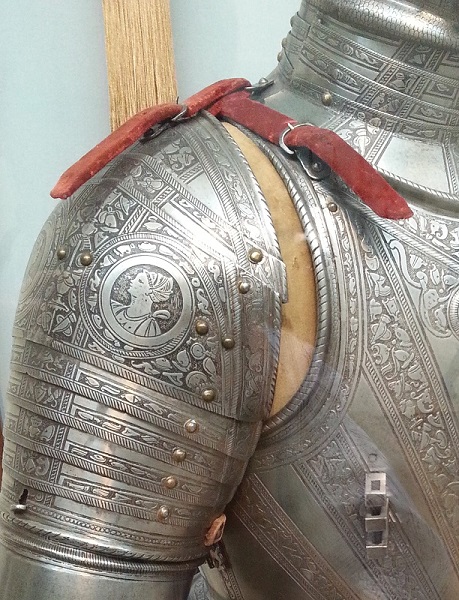
Pauldrons buckled to the gorget on Metropolitan Museum armor 27.159.1
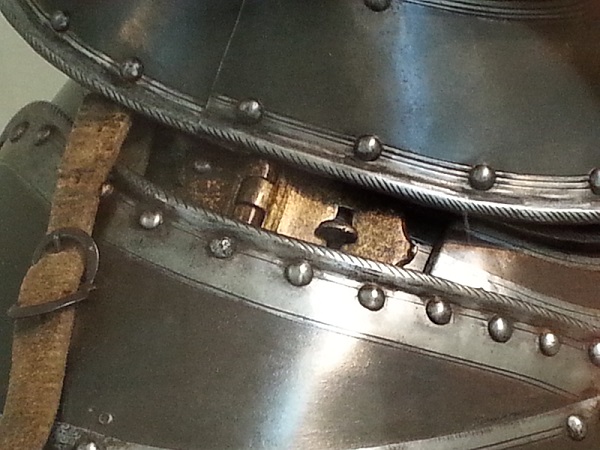
Hinge for joining shoulders of the cuirass on Metropolitan Museum armor 2002.130a–p
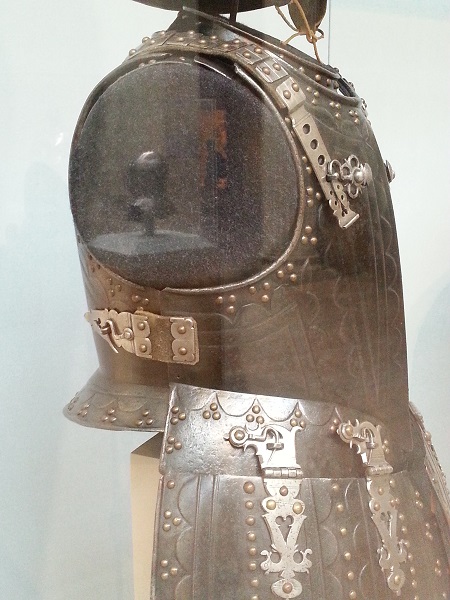
Side view of cuirass on Metropolitan Museum armor 19.129a–f, including the kind of side straps with hooks I would like to have.
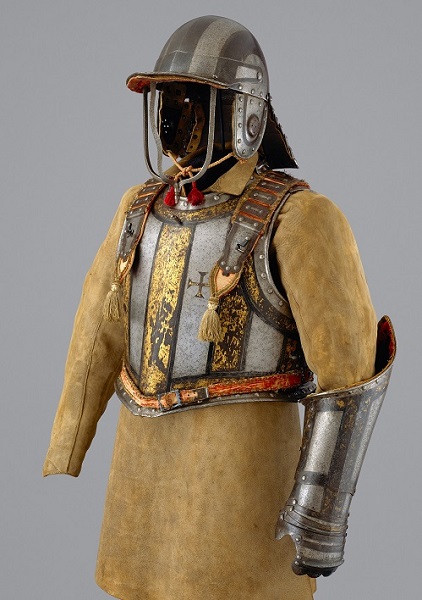
Full length photo of Metropolitan Museum armor 15.113.1–.5 with lobster-tail harquebusier helmet, long gauntlet, hooked shoulder straps, and designed for use without gorget or pauldrons
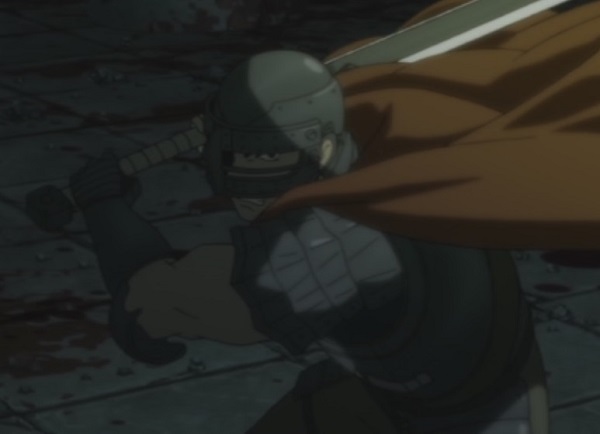
Action pose, film
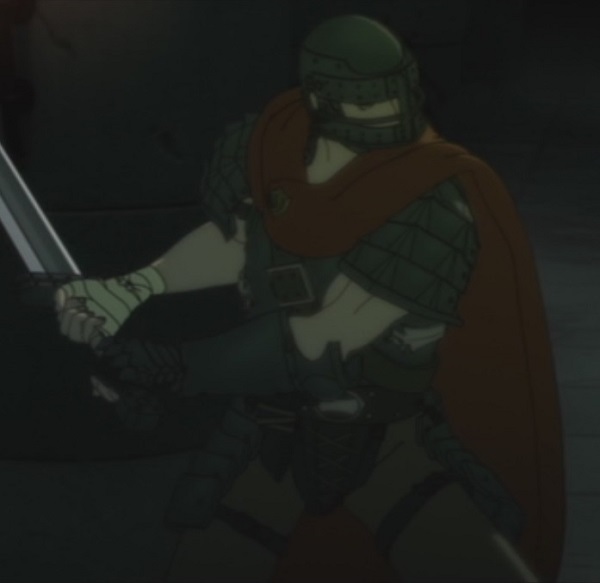
Close up of armor, film
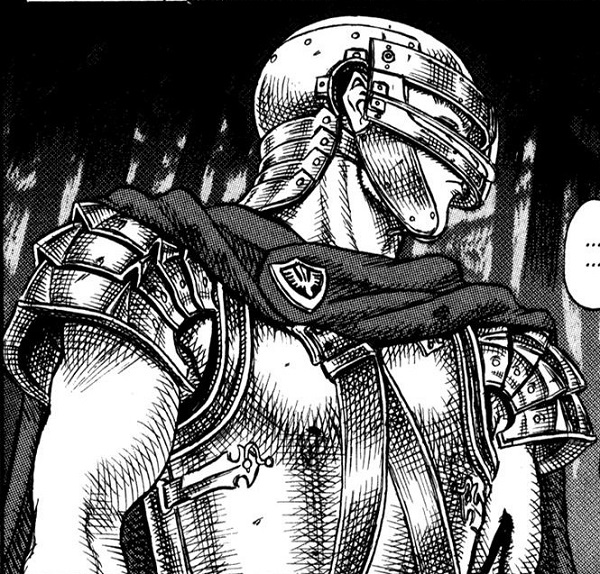
Helmet, side view, manga
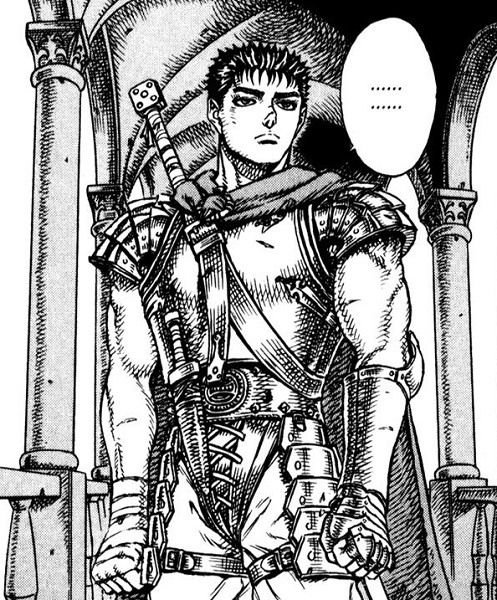
Equipment sans helmet, manga
